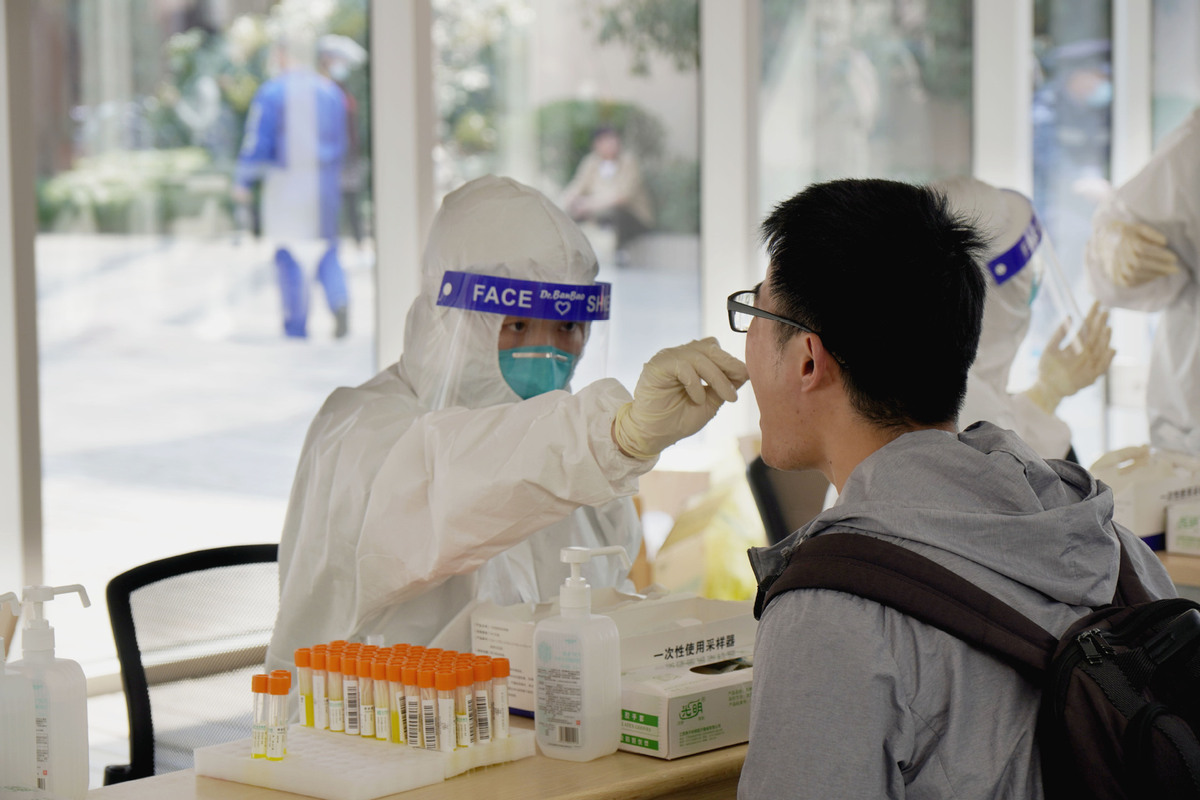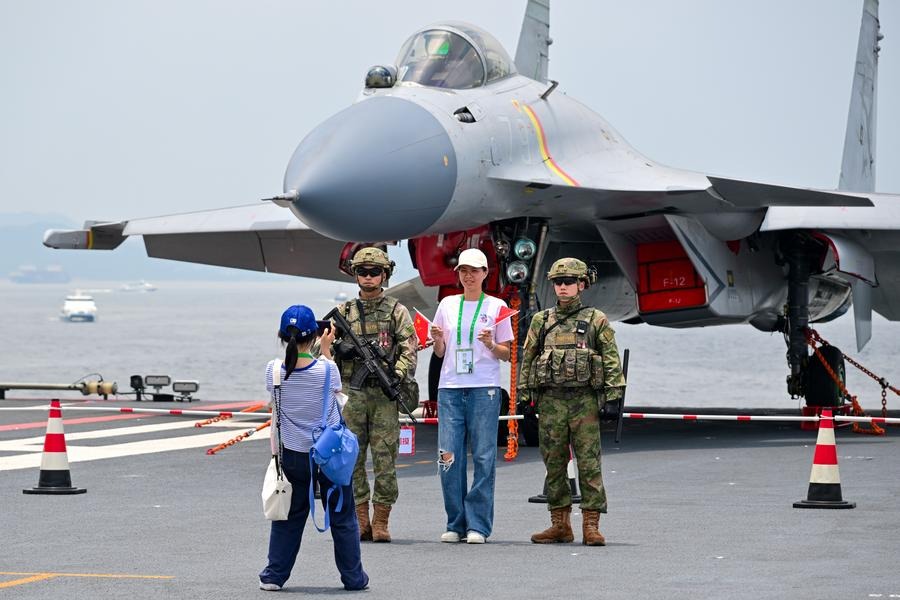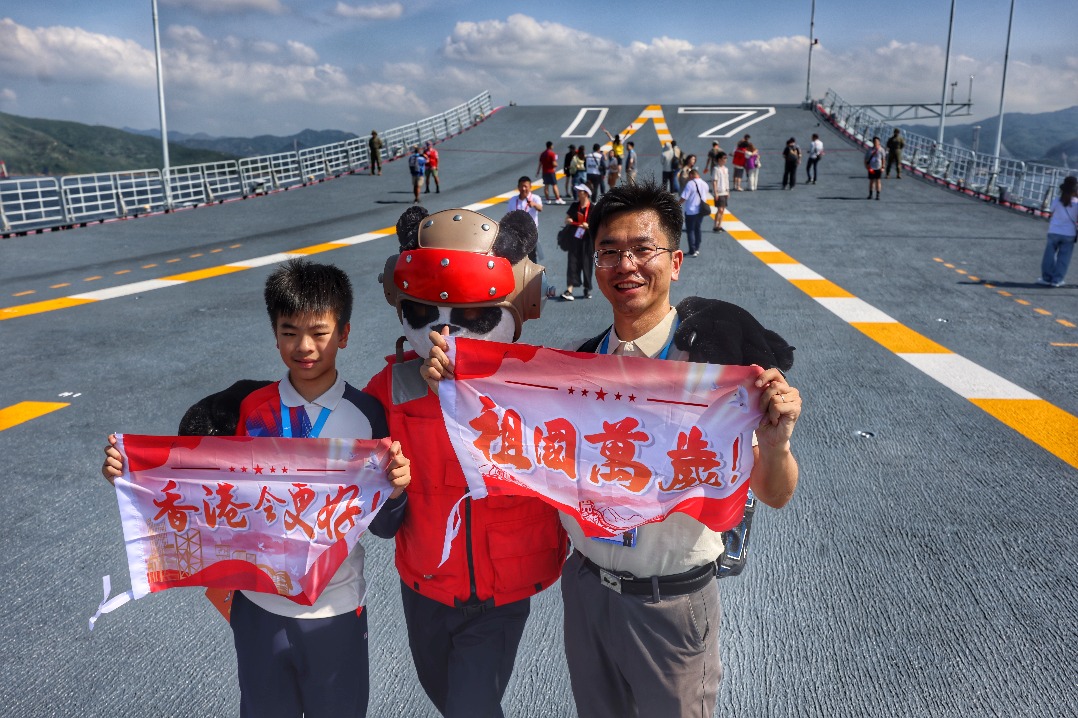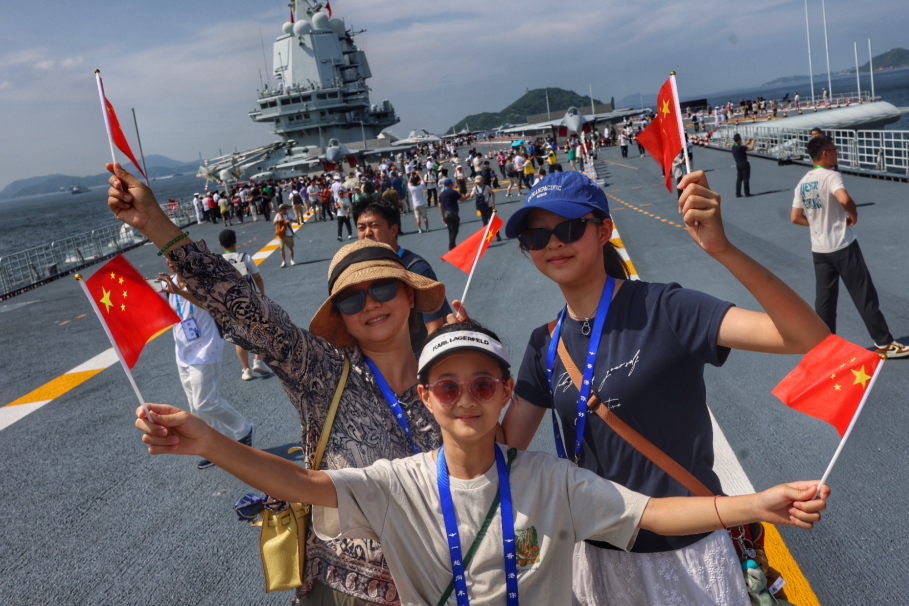Li: COVID struggle all about protecting people


China will strive to adopt a more scientific and precise approach to coping with COVID-19 based on changes in the pandemic situation and the characteristics of new variants, Premier Li Keqiang said at a news conference on Friday.
The goal is safeguarding lives, protecting people's health, maintaining normal production and stabilizing industrial and supply chains, Li said.
Li said that since the emergence of the novel coronavirus over two years ago, China has consistently adopted a coordinated COVID-19 response in terms of economic and social development, while actively promoting international exchanges and cooperation.
Li said the coronavirus-the enemy of all humankind-is still changing, and much remains to be learned, such as the protective effects of vaccines and research into drugs.
"We believe the international community should embrace unity and cooperation, show great mutual understanding and accommodation, and make joint efforts to create conditions for the world to return to normal," he said.
In previous talks with the heads of international businesses and organizations, Li said many had expressed the hope of maintaining essential business exchanges.
"China has opened fast track lanes and green corridors to ensure the normal running of companies and projects in key areas," he said.
"We will continue to accumulate experience and be adaptive to new developments so as to maintain the flow of goods and personnel."
This week, more than 15 provincial-level regions on the Chinese mainland have been hit with locally transmitted infections, with a number of them confirmed as being Omicron variants.
Official data show that the mainland reported 397 domestic confirmed cases on Thursday, slightly down from the previous day's count.
But it also registered 703 domestic asymptomatic infections on Thursday, up over 250 from the day before.
Health experts have attributed the surge of asymptomatic infections to the traits of the Omicron variant and the high vaccination rates that protect against symptoms.
So far, Jilin and Shandong provinces have reported the most infections during this latest outbreak, while Shanghai and Beijing are also dealing with local clusters.
The Shanghai government said on Friday that the source of the recent outbreak has been traced to venues contaminated by imported infections, and management oversights caused local transmissions to spread.
The city has reported about 400 infections this month, with the majority being asymptomatic cases. Beginning on Saturday, all primary and high schools in the city will only give online classes.
Kindergartens, nursery care facilities and after-school education institutions in the city will also suspend offline operations, said local authorities.
Jilin in Northeast China has reported more than 1,000 infections this month.
As a university in Jilin City has emerged as a hotspot, the provincial government said it has set up a task force devoted to intensify testing, sanitization and supplies of materials on campus to curb the contagion's spread.
On Friday, the National Health Commission also announced that China will begin using COVID-19 antigen tests as a supplementary diagnostic method to improve early detection capability.
Compared to nucleic acid testing-the dominant tool widely deployed in the country's mass testing campaigns, the rapid, at-home antigen tests give results more quickly but are generally less accurate.
"Confirming infections of novel coronavirus still requires a nucleic acid test result. Antigen testing can be used as an additional measure to screen target groups and improve our capability to detect new infections swiftly," the commission said in a statement explaining the notice.
Antigen tests will be available in retail drugstores and online shops, it added.
wangxiaoyu@chinadaily.com.cn
- China, Myanmar, Thailand hold ministerial-level meeting on telecom and cyberspace
- Prado in virtual reality
- Shantou education department suspends classes due to Typhoon Danas
- China's scientists make breakthrough on how H5N1 influenza occurred in the US
- Civil Aviation Administration of China announces a new extension of M503 flight route
- China's ecological civilization praised by Solomon Islands parliament





































